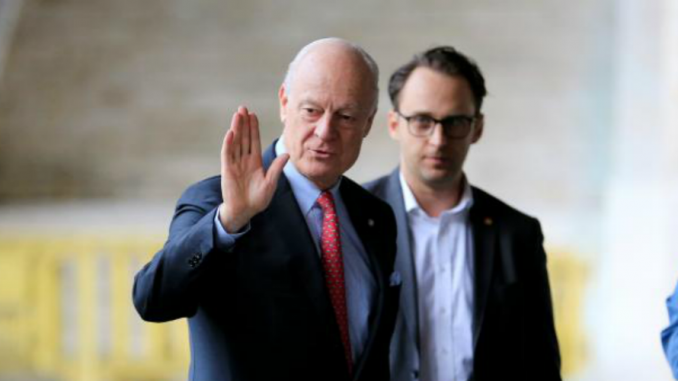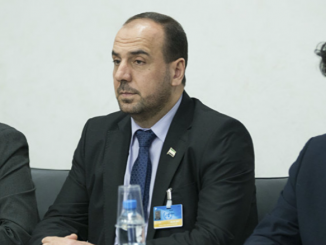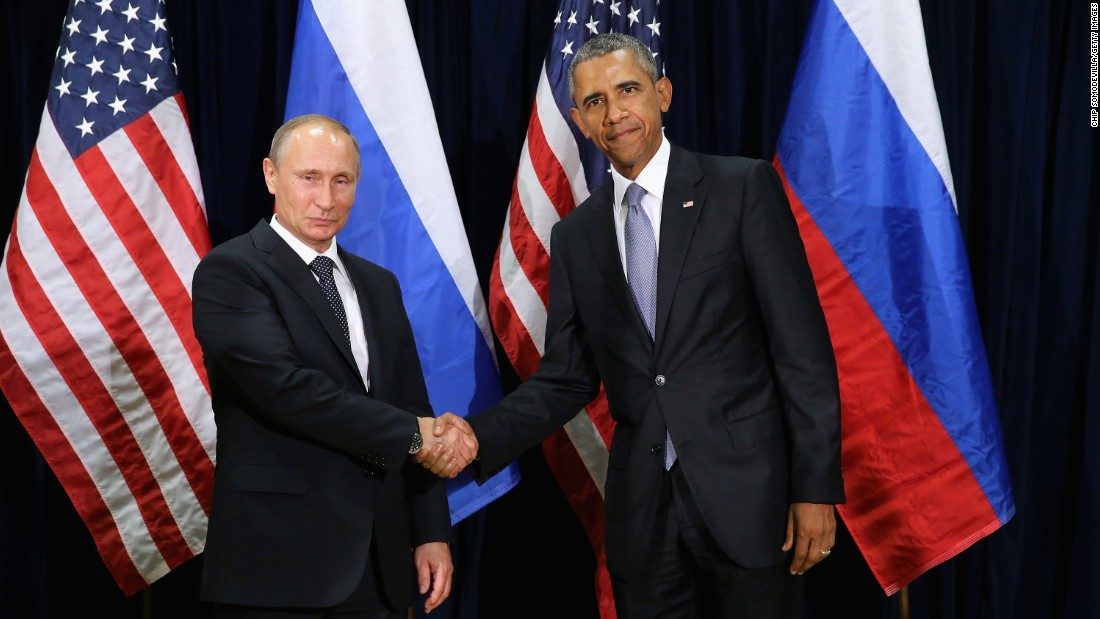
A new round of the UN-brokered peace talks in Geneva resumed on Friday with both sides trading blames, while regime accused opposition delegation of backing terrorists as rebels launched offensives of Damascus and Hama.
The latest round of Syria peace talks has started in Geneva on February 23. after it was previously planned to be on February 8. but delayed in order to take advantage of the results of Astana settlement about the ceasefire in Syria, which was planned by Russia, Turkey, and Iran.
De Mistura told the representatives of both delegations that they had a joint responsibility to end a conflict that had killed hundreds of thousands and displaced millions.
The opposition’s delegation accused the regime delegation of seeking to hinder the peace talks as its head said the main goal of the talks should be combating terrorism without mentioning the political process, while regime forces in Syria kept breaching the ongoing shaky truce and killed dozens of civilians since the talks started.
However, both sides could point to small victories. The opposition said that the question of political transition was seriously addressed for the first time, while U.N. envoy Staffan de Mistura said counter-terrorism – an issue pushed by Assad regime’s delegation – had been added to the agenda.
The latest developments in Syria definitely will have an effect on the new round of talks.
Syria rebels were advancing in Hama Province, as part of their biggest offensive against government forces in months.
The city of Hama remained under government control but the opposition has gained ground in the countryside; rebels have seized 11 villages and several ammunition depots since Tuesday.
Rebels fought with soldiers on the edge of the city centre in the Jobar district for a fifth day on Thursday.
Fighting terrorism
De Mistura tried to strike an optimistic note when the previous round ended last month, insisting that “everything is ready” for the talks to move forward while reiterating his view that there is no military solution to Syria’s devastating civil war.
But analysts disagree with the UN envoy, putting the chances of compromise at an all-time low, due in part the regime’s increasingly strong position on the ground.
The head of regime’s delegation, Bashar al-Jaafari, delivered a 40 minute polemic attacking the political and armed opposition and their foreign backers, labeling them all “terrorists”.
The first three topics are collectively supposed to ensure a political transition in Syria – anathema to Assad. Jaafari said they would not be neglected, but terrorism needed to be the priority.
Short after a two-hour meeting with U.N. mediator Staffan de Mistura, which he said had focused primarily on combating terrorism, Bashar al-Jaafari told reporters he would follow up on Saturday with another meeting, again all about terrorism.
Ja’afari said Turkish-backed rebel groups were now breaking the ceasefire, and coordinating with Tahrir al-Sham, proof they were supporting terrorism and showing why terrorism needed to top the agenda.
“Anyone who objects to such an approach would simply reveal their true face which is being a sponsor of terrorism,” he said.
He said the terrorist attacks had one goal, which was to undermine the peace talks.
Regime is breaching the ceasefire
Nasr al-Hariri, the Syrian opposition’s chief negotiator in the talks, accused the government of not being committed to peace.
“I would like to remind you that since the beginning of the last round of talks, last month in Geneva, at least 11 schools have been targeted, in addition to at least 11 medical centres, including hospitals and makeshift clinics, and five markets by the Assad regime’s air force and the countries that are supporting the regime.”
Hariri described before the rebels’ new attacks around Damascus and Hama as “self-defence.”
Since Russia’s military intervention in support of Assad in 2015, the regime has gained the upper hand, retaking the former rebel bastion of Aleppo late last year.
For Syria specialist Thomas Pierret, as “the regime continues to gain ground … there’s no reason for it to make the slightest concession.”
However, analysts said that the rebels were aiming to put more pressure on the international community as they tried to bring about a political solution to the crisis.
“This is the first time in months that we’ve seen momentum being built by the rebels to take over ground, particularly in Hama,” he said.
“[The rebels] are sending a clear message to the international community that, despite the fact that they lost Aleppo last year … they can still change the reality on the ground.”
The Syrian crisis began as a peaceful demonstration against the injustice in Syria. Assad regime used to fire power and violence against the civilians and led to armed resistance. 450.000 Syrians lost their lives in the past five years according to UN estimates, and more than 12 million have lost their homes.



